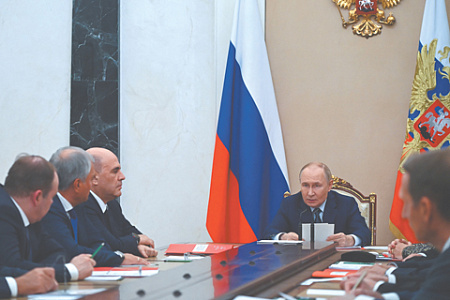
Russian President Vladimir Putin has announced that Moscow is prepared to voluntarily adhere to the core quantitative limits of the New START nuclear arms control treaty for one year after its scheduled expiration in February 2026. Speaking at a Security Council meeting, Putin framed the move as an effort to ensure a “predictable and restrained” strategic environment and prevent a new arms race, calling a complete abandonment of the treaty’s framework a “short-sighted and erroneous step.”
This unilateral commitment, however, comes with a significant condition: that the United States reciprocates in kind and refrains from actions that could destabilize the strategic balance. Putin specifically instructed Russian agencies to closely monitor Washington’s development of its strategic missile defense system, expressing particular concern over American plans to potentially deploy anti-missile interceptors and other components in space.
The New START treaty, which entered into force in 2011 and was extended for five years in 2021, has been a cornerstone of global strategic stability. It caps the number of deployed strategic nuclear warheads for both nations at 1,550, limits deployed intercontinental ballistic missiles, submarine-launched ballistic missiles, and heavy bombers to 700. In February 2023, Russia suspended its participation, citing alleged U.S. violations and a changed geopolitical landscape, but declared it would continue to respect the numerical caps.
Putin suggested that this Russian initiative could help create a more favorable atmosphere for a substantive strategic dialogue with the United States. However, he emphasized that a full-scale resumption of such talks would depend on a broader normalization of bilateral relations and the resolution of what he termed “fundamental contradictions in the field of security,” signaling that the future of arms control remains deeply intertwined with the wider state of U.S.-Russia relations.
